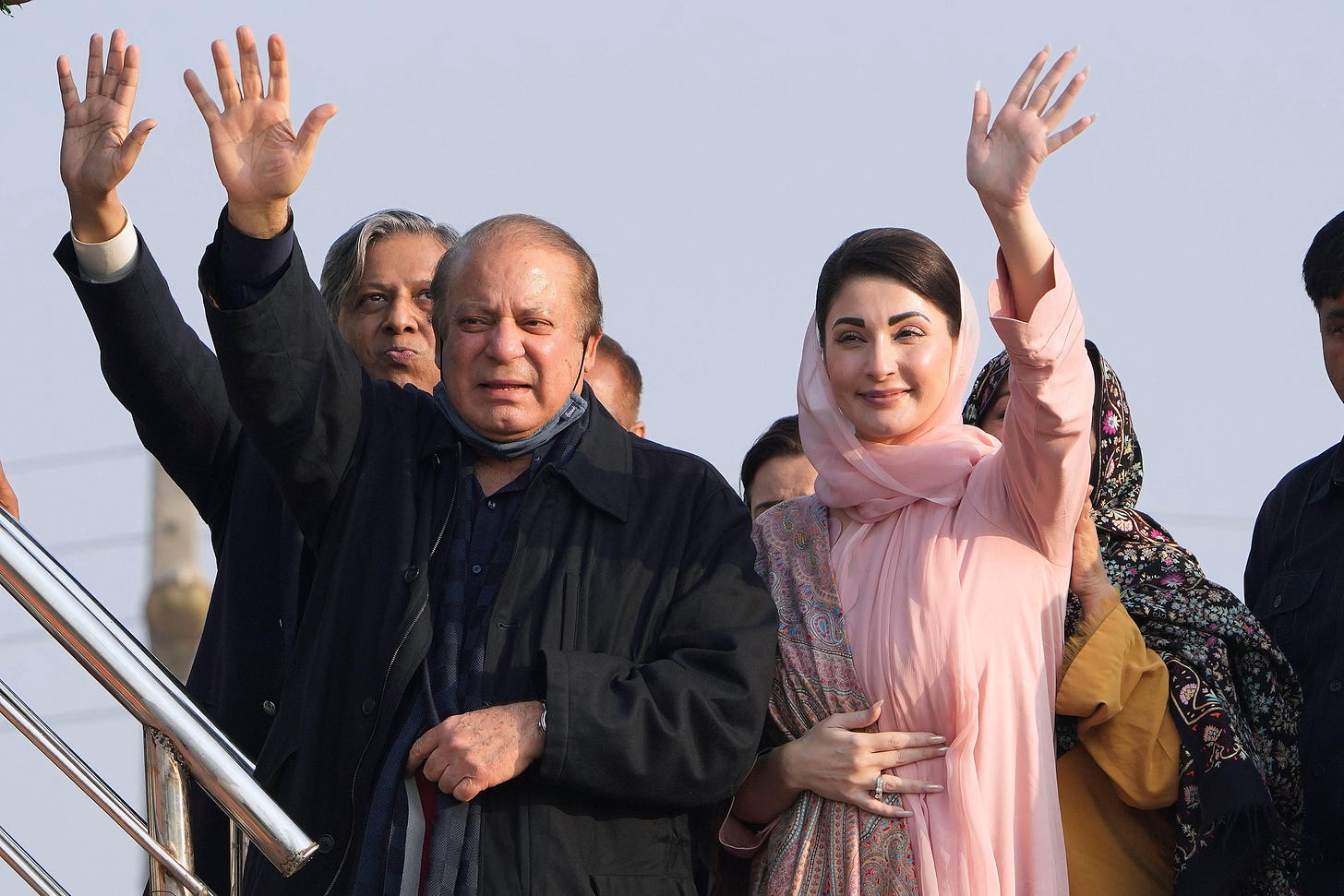Pakistan: Out of the Mist and Into the Murk
BJ Sadiq on the return of Nawaz Sharif and what it means for Pakistan's upcoming election.

Maryam Nawaz, daughter of three-time former Prime Minister Nawaz Sharif – founder of the PML-N political party – was out on a husting on Monday 15 January, in Okara, a small agricultural town of austere means, full of the stench of bovine manure and sugar mills, not far from Lahore, the capital of the Punjab. It was cold, dark and dullish. The sky was spread over with one continuous cloud of fog drifting across the town; in the general stillness and hush of the winter season; the rally turned out to be moderately festive. Loudspeakers crooned heartfelt lays about the country's present ruin, and her promising future. There were lavish fireworks too that served as the great prelude to a string of speeches made by passionate party workers.
Clad in a crimson-coloured shalwar kamiz, her ebony loops of hair organized in a neat bun, Maryam spoke with fresh imperial confidence; her present public appearance suddenly seemed less arduous, less demonstrative in emotion. Although in her old habit of riling up her political opponents, she remained unaltered, and never out of breath. The Sharif camp looked comfortable and carefree, assured of certain victory in the upcoming national polls to be held early next month. The assurances have come from the country’s arch-kingmaker: Pakistan’s omnipotent military establishment.
Later in the week, a bald and pink-jowled Nawaz Sharif, (he is 74 now), addressed a packed rally in Hafizabad, a city in Central Punjab, expressing a kind of altruistic parental concern, and just like his daughter, looking calm, genuine, emancipated and as integrated with his audience as one could be. There was no mark of formality there, nor any trace of external pomp. ‘If I had remained in power, none of you would be without a job today,’ he murmured rapturously.
Sharif was removed from power in 2017 on corruption charges linked to the ownership of four luxury properties in London. A year later, in 2018, after a lingering inquiry, the National Accountability Court sentenced him to ten years in prison; in addition, the ruling carried a penalty of $10.6 million. He was also banned from holding any political office. That same year, Sharif had flown to London on bail for a medical treatment, but absconded and enjoyed a period of uninterrupted exile, often spotted out and about on Oxford Street; his movements a trifle encumbered by his accompanying security detail.
However, in an interesting turn of events, he returned to Pakistan on 21 October 2023, absolved of all his past transgressions. His court cases have now been cleared, and his lifetime ban from politics generously revoked. His speech at Hafizabad was touched with ample references to the sacrifices he had made in a political career wrought with litigation; and his mien was not that of one who had just recovered from any sort of medical calamity. In truth, Sharif’s electoral appeal seems bogus and public response to his rallies rather lukewarm.
In contrast, Sharif’s arch nemesis, cricket celebrity and former Prime Minister Imran Khan, widely believed to be the most popular political leader in the country’s recent history, is having a bad time since his dismissal from power in April 2022, following a successful no confidence vote. Falling out of favour with the all-encompassing military establishment, Khan continues to be relevant, and his popularity louder than before. Although his prospects in the upcoming general elections are far from sound.


